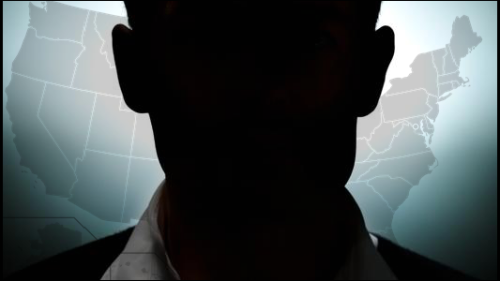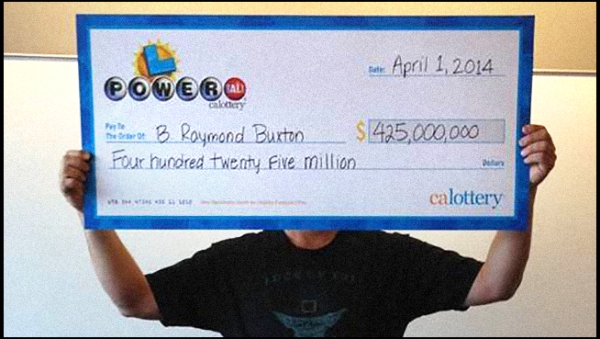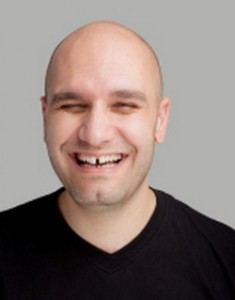US States that Allow You to Win the Lottery and Remain Anonymous

Winning the lottery has many upsides, but one of the downsides is that depending on where you live you can lose your anonymity entirely.
Some winners have found this intolerable and been unable to cope with the pressure. Some argue that wherever you live, you should have the right to choose whether you reveal your identity or not.
Here we look at the US States that allow you to win the lottery and remain anonymous and a few stories from people who have been affected by this controversial clause.
Raymond Buxton’s Story

Raymond Buxton sacrificed his anonymity when he came forward as the sole winner of the $425 million Powerball jackpot. This was after six weeks of staying in the shadows.
He claimed his money from the California Lottery without the fanfare of a news conference. He even went as far as covering his face in a publicity picture with the standard oversized check.
It will do little to help friends, family, and random acquaintances alike from trying to get a piece of his windfall.
Speaking afterward, Buxton said, “If I could have stayed anonymous, I would have.”
Jason Kurland, an attorney who is an expert in this kind of case, says “Everyone’s different. Some people will enjoy this five minutes in the spotlight. But a lot of times, winners come to me, and they’re petrified. They don’t know how to protect themselves from other people with their hands out.”
In a news release, California Lottery officials described Buxton as a Northern California retiree who came to their offices on April Fool’s Day wearing a Yoda T-shirt that read, “Luck of the Jedi I have.”
It was all part of a deliberate display that Buxton orchestrated after he realized he bought the winning ticket in the Feb. 19 drawing, according to one of his advisers, Sam Singer.
The singer remained tight-lipped on Buxton’s life but told NBC News that he’s a “hardworking, middle-class American with a large family. He has a wonderful, charming sense of humor.”
Buxton, a regular lottery player, had already purchased one ticket for the drawing, featuring one of the most massive Powerball jackpots in U.S. history. He decided to buy a second ticket during a sandwich run at a Chevron gas station in Milpitas, north of San Jose. That one had the winning numbers.
Buxton chose to collect the cash option, which will leave him with $242 million before taxes. He told lottery officials he plans to use some of that money to start a charitable foundation focused on pediatric health, child hunger and education.
He’d also like to travel and go on a road trip with his family, Singer said.
“He said, ‘I want to enjoy my family. I don’t want to be like Ali G and come with cameras and be a spoof,’” Singer added.
While Buxton may decide to go public down the line, he wants to hold on to as much privacy as possible for now.
California is among the majority of states that insist lottery winners reveal their identity.
Mike Wittkowski’s Story
This story is something former lottery winner Mike Wittkowski can appreciate. Thirty-four years ago In 1984 and at the age of twenty-eight, he won $40 million in the Illinois Lottery.
He was forced by law to come forward and take part in a news conference – and he did not want to. As part of a deal with his family, he split the money with his father, brother, and sister. Wittkowski agreed to be paid annually throughout twenty years.
But of course, soon after the begging letters and requests for monetary assistance began. Some more outrageous than others. One lady did trip herself up.
“The average lottery winner is a blue-collar individual, and all of a sudden you give them tens of millions of dollars and you post their name across the world…I had a lady who wrote me a 21-page typed letter and said she was down to her last $20, but she sent it to me registered mail. It cost her $19 just to send the letter.”
Despite the huge win and the fears of losing his privacy, the win was a good thing for Wittkowski. He retired at 28. He and his wife invested properly and were able to live off the money and send their children to college. He did not tell his children about the lottery win. “It’s so much better for your privacy and everything else, you get every crazy contacting you,” Wittkowski said.
Unlucky Lottery Losers
Other jackpot winners have had far more difficulty keeping their anonymity. These are the “lottery losers,” according to attorney Andrew Stoltmann. He has represented millionaires after they’ve lost their money to con artists and in bad investments.
“The average lottery winner is a blue-collar individual, and all of a sudden you give them tens of millions of dollars and you post their name across the world, and then you expect them to act responsibly — it’s an unenviable expectation,” Stoltmann said.
Jason Kurland, the lottery lawyer, comments that new winners can try to limit their public exposure up front. He advises that during news conferences, they should say as little as possible. He also states that in states where it’s permitted, they can also form a limited liability company so that when a winner’s name is reported, it’s the LLC and not individuals being identified.
When Losing Your Anonymity Goes Wrong
In August last year “Wild” Willie Seeley and fifteen of his colleagues at an Ocean County, N.J., maintenance garage won a $450 million jackpot, they basked in the spotlight.
But just a few short weeks later, Seeley protested that he wished he could go back to his old life. “There are days I wish we were back to just getting paid every two weeks,” he said.
Seven States That Allow Anonymity for Lottery Winners
At the time of writing, there are currently seven states:
- Delaware
- Kansas
- Maryland
- North Dakota
- Ohio
- South Carolina
- Texas
That allow lottery winners to stay anonymous. It is believed Georgia might soon adopt this principle too. A handful of other states, like California and Wisconsin, entirely forbid winners to remain anonymous, “and then there are the states with gray areas,” says Jason Kurland.
You can, depending on where you live, “form a trust and hide behind that. Your lawyer can be the face of the trust.”
‘Jane Doe’s’ Story
Which brings us to our final case study. This is exactly what Jane Doe, in New Hampshire, did. ‘Jane Doe’ was the winner of January’s Powerball jackpot of $560 million and wants to keep her name out of the public record.
However, New Hampshire, where she lives, doesn’t allow winners to claim their winnings anonymously. In January she filed a lawsuit in an attempt to protect her identity.
There are specific reasons why states have an interest in making the lotto winners’ identities public to protect the integrity of the game. A prime example is the Iowa security chief who rigged the $16.5 million lottery.
The story goes that he had been a computer programmer in the state lottery office and evidently did some programming of the numbers and then tried to claim it anonymously.
In the case of ‘Jane Doe,’ he had already signed her lottery ticket in her name. Now, lottery officials have refused to let her white out her name and re-sign in the name of the trust.
Financial advisors usually instruct the winner to sign the ticket immediately, so the ownership is indisputable. So does the New Hampshire case mean that the lucky holder of the winning Powerball ticket shouldn’t sign the back of the ticket?
Jason Kurland believes that leaving the ticket unsigned, and risking someone (even your lawyer) stealing it, is a significant risk. His recommendation is “Sign it, but sign it small. Then you can add trustees or several trustees, and the name of the trust.”
Then he says you must find trusts and an estates attorney in your state to advise you. They should put you in contact with a financial planner. You’ll owe taxes, and you’ll likely want to consider how best to handle charitable contributions and gifts to family and friends. “Once you set up your team, you can’t go wrong,” says Kurland.
But perhaps the best advice comes from New York City trusts and estates attorney Alison Besunder. She says “The bigger problem arises when there is an oral (usually flippant) promise to share the proceeds.” If you want to keep your anonymity, keep your mouth shut!
It’s clear there perhaps needs to be more stringent rules on protecting those people who do wish to keep their anonymity after a huge lottery win. These case studies show that it can be a mixed bag of fortunes, with some people coping well with the ‘fame’ thrust upon them, and others wanting to stay as anonymous as possible.
With relatively few states opting to give people a choice to retain anonymity, perhaps now the time has come for a more reasoned debate on letting people who win any huge jackpot have the right to keep their identity.

Jonathan White is the founding editor of LotteryPros and one of the original voices behind the platform. With extensive experience in both lottery journalism and digital publishing, Jonathan helped shape the site’s mission of transparency and unbiased reporting. He specializes in reviewing global lottery platforms, analyzing industry trends, and guiding the editorial vision of LotteryPros. His work has set the standard for clarity, fairness, and player-first reporting since day one.